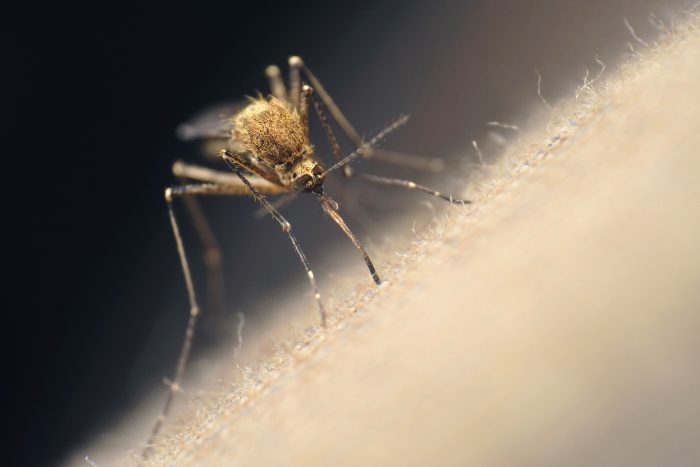Suffolk County Health Department warns of West Nile Virus after Tropical Storm Ida
Tropical Storm Ida’s heavy rains may create a breeding ground for the mosquitoes that carry West Nile Virus, health officials warn.
“Following the recent heavy rainfall, we are concerned that standing water and summer temperatures will allow mosquitoes to proliferate,” Gregson Pigott, Suffolk County health commissioner, said in a statement. “While there is no cause for alarm, we ask residents to cooperate with us in our efforts to reduce exposure to West Nile virus and other mosquito-borne diseases.”
As of last week, 92 mosquito samples and four birds had tested positive for West Nile virus. From Aug. 25 to Aug. 26, 21 samples tested positive for the virus.
At least one mosquito from samples collected in Cold Spring Harbor, Huntington Station, Northport, Stony Brook, Port Jefferson Station and Rocky Point tested positive for the virus, according to the Suffolk County Health Department.
Most people infected with West Nile Virus, which was first detected in Suffolk County in 1999, have mild or no symptoms. Some, however, can develop high fever, headaches, neck stiffness, disorientation, coma, tremors, convulsions, muscle weakness, vision loss, numbness and paralysis, according to the health department.
Over the last 20 years, the number of mosquito samples testing positive for West Nile ranged from a low of eight in 2004 to a high of 295 in 2010, a year that also saw 25 human cases with three deaths.
Pigott urges residents to wear shoes and socks, long pants and long-sleeved shirts when mosquitoes are active. He also suggested using mosquito repellent, while reading and following directions carefully.
The Centers for Disease Control and Prevention recommends repellents containing DEET, oil of lemon eucalyptus, picaridin and IR3535, which can be used on skin and clothing. For children, lower concentrations of DEET are preferable, according to the CDC.
Insect repellents with permethrin should only be used on clothing and not directly on the skin.
Effective screens on windows and doors can keep mosquitoes out of homes and living areas.
Emptying containers that hold water, such as vases, pet water bowls, flowerpot saucers, birdbaths, trash cans and rain barrels can reduce available water sources for mosquitoes to lay their eggs. Scrubbing containers like pet water bowls can remove insect eggs that might otherwise survive.
Adrian Popp, chair of Infection Control at Huntington Hospital, explained that most disease doctors are on the lookout for West Nile infections. He tests everybody with an unexplained fever or other symptoms.
In a typical year, Huntington Hospital sees a few cases of West Nile. So far, Popp said, the hospital hasn’t reported any such illnesses.
“It is hard to say if it will be more prevalent this year since we had only a few cases in New York State so far and it is already the end” of the summer season, Popp wrote in an email.
While Popp said anyone is vulnerable to West Nile Virus if he or she is bitten by a mosquito, most cases are asymptomatic. Fewer than one percent of those who contract West Nile Virus develop more severe symptoms.
For those people who have more severe symptoms, doctors don’t have many tools at their disposal.
“There is no etiologic therapy,” Popp explained in an email. “Therapy is supportive, symptomatic care.”
The county urged residents concerned about West Nile Virus to download a copy of an informational brochure called “Get the Buzz on Mosquito Protection” on www.suffolkcountyny.gov.







